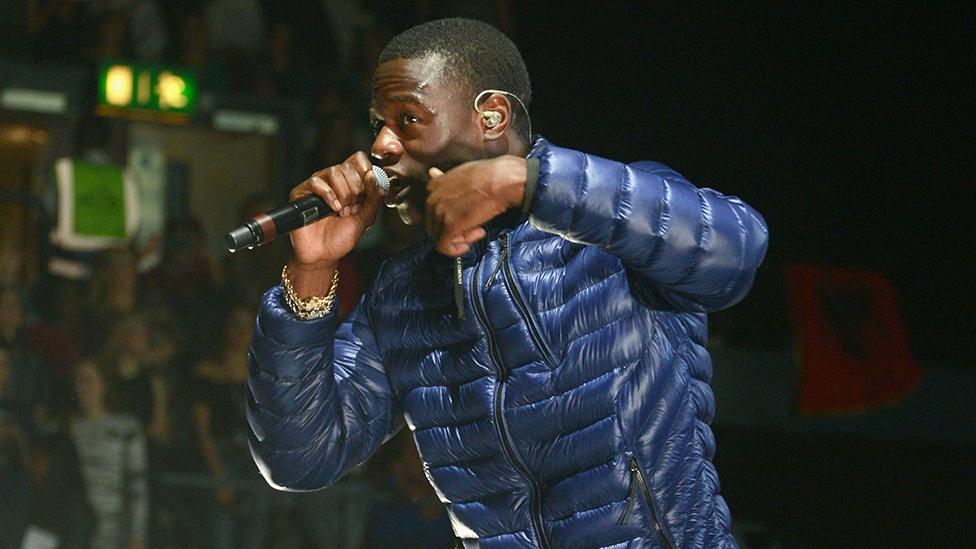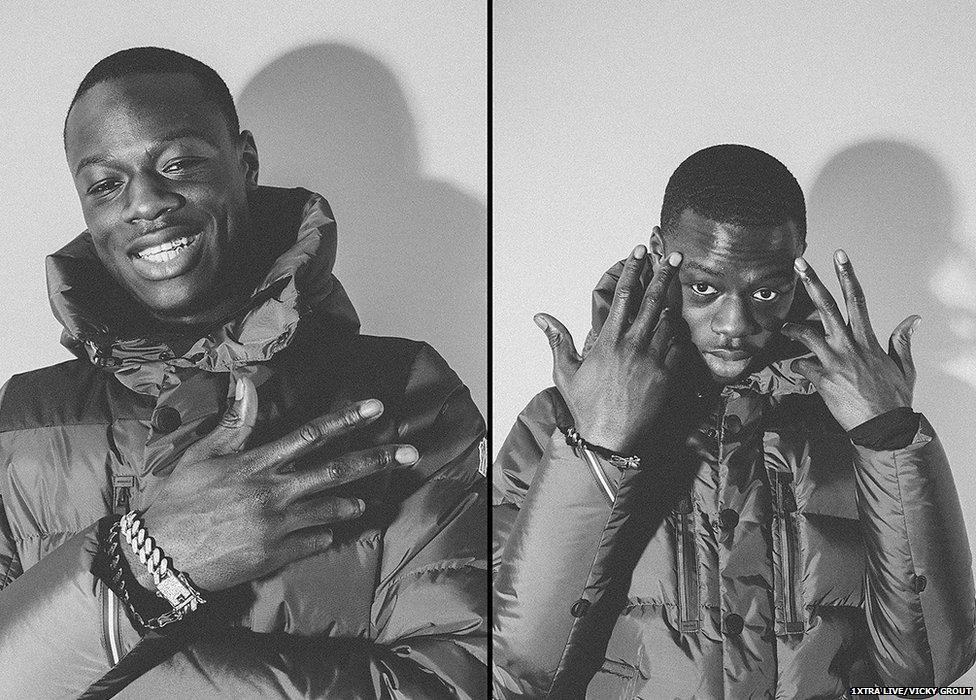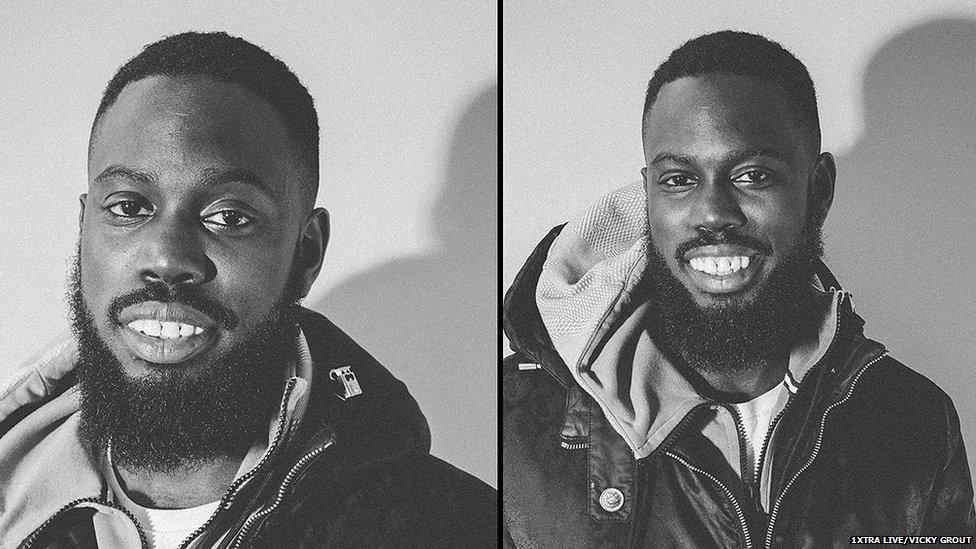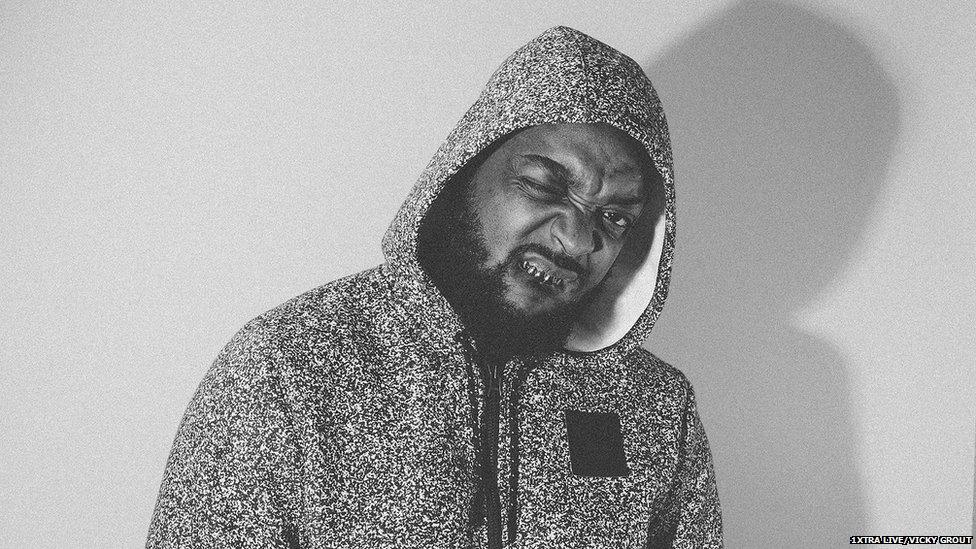Grime artists J Hus, Ghetts and Donae'o react after news form 696 will be ditched
- Published

J Hus will play his first headline gig in his hometown later, after news that the 696 form is to be phased out.
The concert was announced earlier this year, but he was one of a number of grime artists who'd suggested police had stopped them playing in London.
"As an artist, you're trying to inspire the youth and show them that they can do it just like us," he tells Newsbeat.
"[I want] to show the other youths from the same place that we came from that you can overcome your situation."

J Hus has sold out Brixton O2 Academy in south London
When J Hus toured the UK earlier this year he couldn't include any London dates.
"Finally we overcame that issue," says the 21-year-old.
J Hus performed at 1Xtra Live in Manchester this month., external
Since 2005, promoters and licensees have had to complete form 696 if they want to host music events with DJs and MCs in London.
The form asks for the contact details of the artists, which allows police to carry out background checks on them.
J Hus tweeted: "Yes I'm finally playing in London!", external
Last week the Met announced it would be phasing it out, because the number of "serious incidents" at gigs had fallen.
It is due to be replaced by a new "voluntary partnership approach".

Ghetts says 696 affected him "a few times"
Police deny form 696 has been used to target particular genres but grime artists including Giggs and P Money say it has led to their gigs being cancelled.
Rapper Ghetts tells Newsbeat that it's affected him "a few times".
"I know it's affected some of my peers very heavily throughout their careers.
"A lot of these up-and-coming artists are building their buzzes, and due to past circumstances they weren't allowed to tour and really capitalise on what they created.
"Eventually people don't want to book you because their shows might get cancelled. That form had a really bad domino effect."

Donae'o, who's from London, featured on Giggs' 2016 song Lock Doh
Donae'o agrees, saying form 696 has been stopping people who have previous criminal convictions from making their lives better.
"If someone's gone out of their way to stop doing bad things, to become a better person, they shouldn't be condemned for the old things they've done," the rapper tells Newsbeat.
"At the end of the day, when you're poor, sometimes you can't get a job and you only have a few choices.
"Now, one of those choices is, 'I can work in entertainment, I can make a career from this rather than do something that can get me killed or put in jail'."
Earlier this year, a freedom of information request found 16 other police forces in England have been using a similar form.
"I think at this point they need to be scrapped," says Donae'o. "These artists should be allowed to be the best version of themselves."
Find us on Instagram at BBCNewsbeat, external and follow us on Snapchat, search for bbc_newsbeat, external